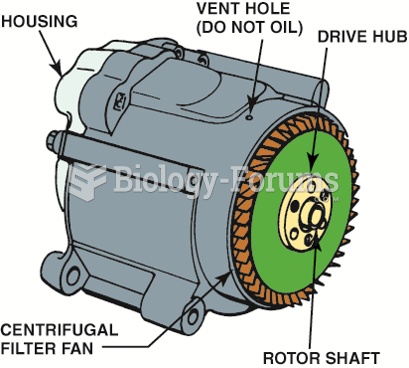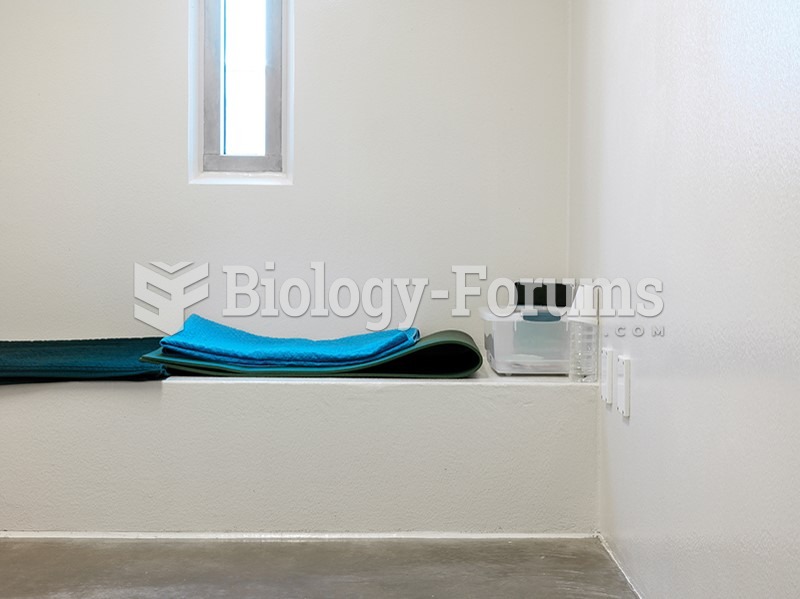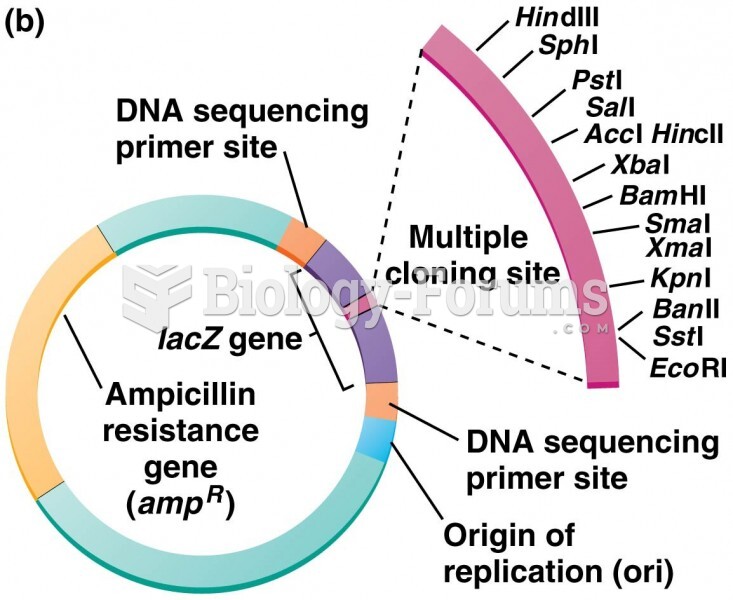|
|
|
As the western states of America were settled, pioneers often had to drink rancid water from ponds and other sources. This often resulted in chronic diarrhea, causing many cases of dehydration and death that could have been avoided if clean water had been available.
The liver is the only organ that has the ability to regenerate itself after certain types of damage. As much as 25% of the liver can be removed, and it will still regenerate back to its original shape and size. However, the liver cannot regenerate after severe damage caused by alcohol.
If all the neurons in the human body were lined up, they would stretch more than 600 miles.
Eat fiber! A diet high in fiber can help lower cholesterol levels by as much as 10%.
When taking monoamine oxidase inhibitors, people should avoid a variety of foods, which include alcoholic beverages, bean curd, broad (fava) bean pods, cheese, fish, ginseng, protein extracts, meat, sauerkraut, shrimp paste, soups, and yeast.
 A typical belt-driven AIR pump. Air enters through the revolving fins behind the drive pulley. The ...
A typical belt-driven AIR pump. Air enters through the revolving fins behind the drive pulley. The ...
 A typical OBD-II data link connector (DLC). The location varies with make and model and may even be ...
A typical OBD-II data link connector (DLC). The location varies with make and model and may even be ...





